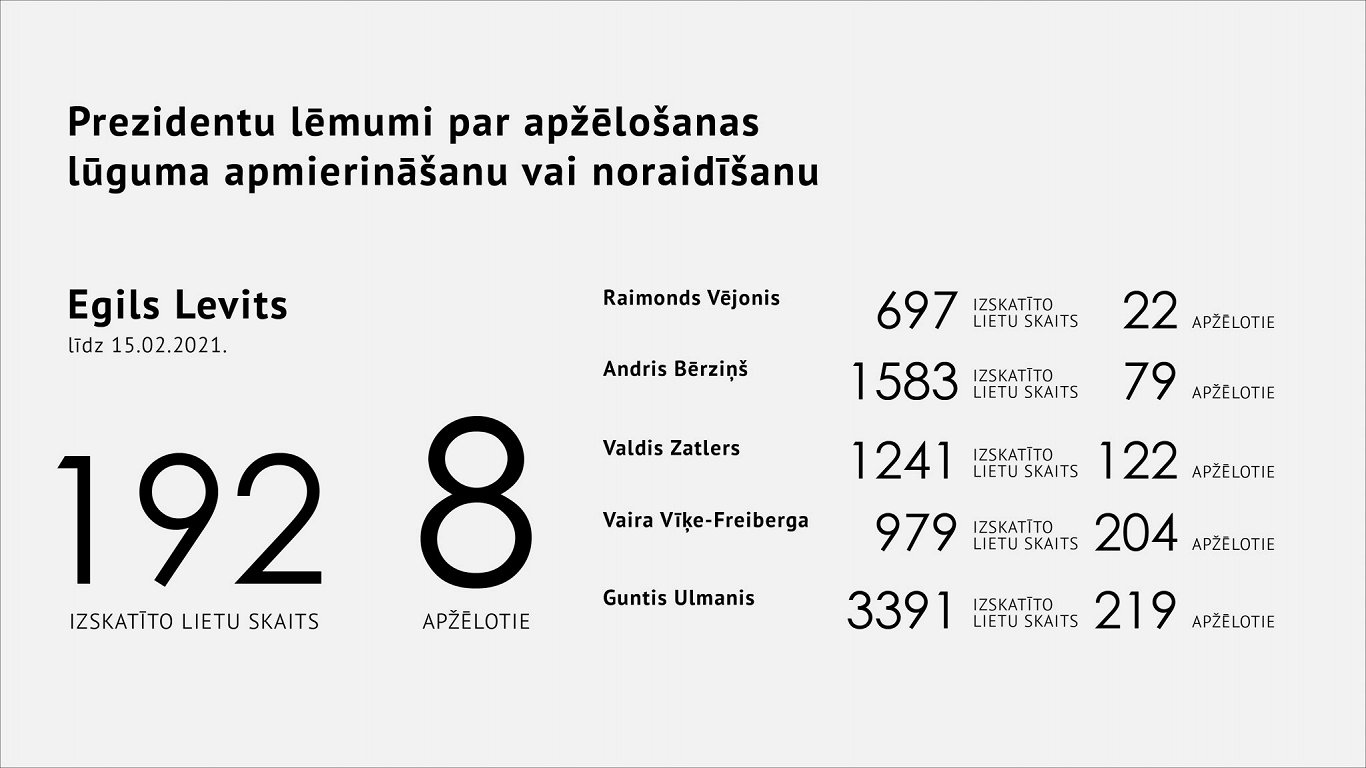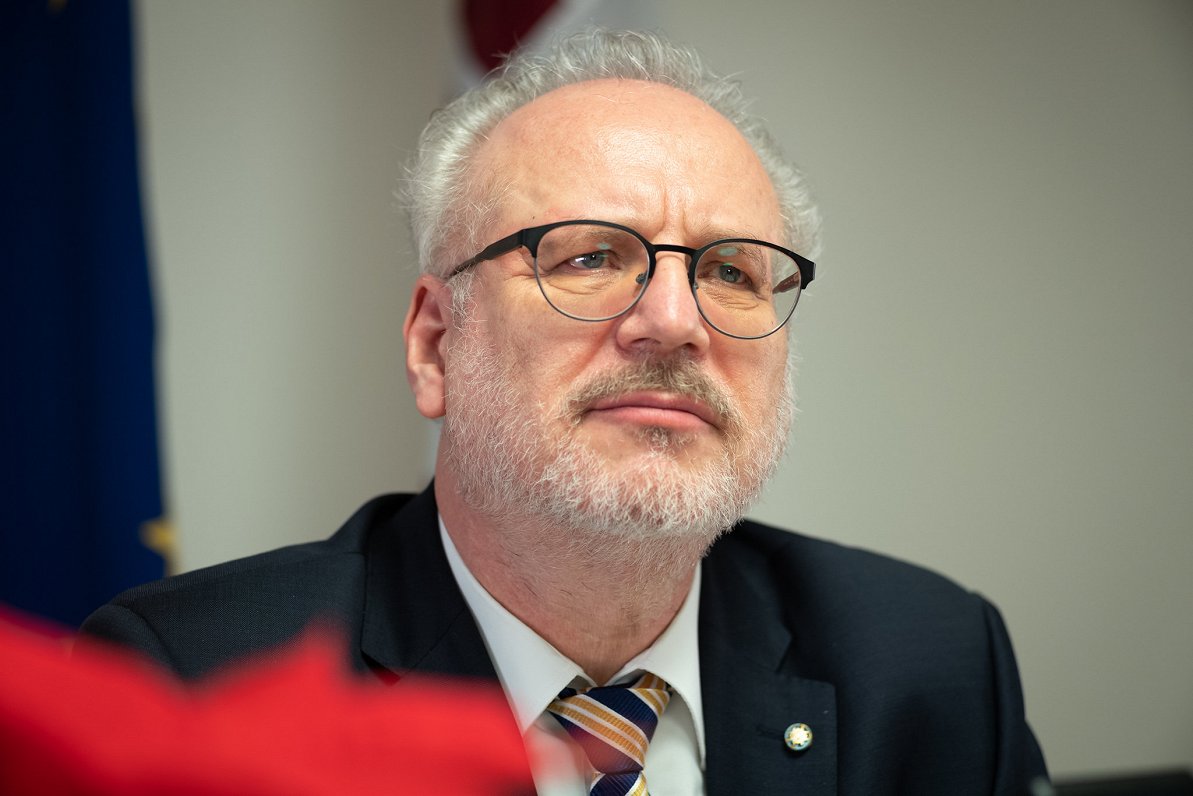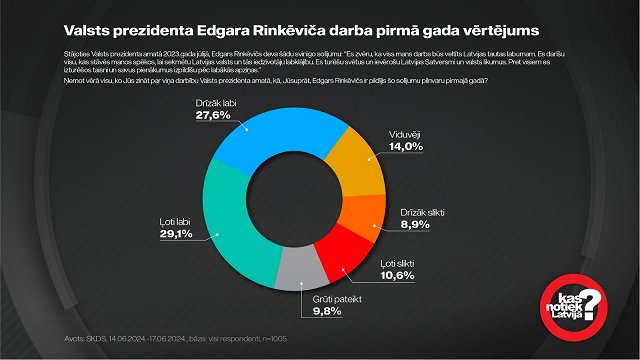Under the terms of the constitution, the president does have the power to grant pardons to convicted persons. The President of Latvia can replace the uncompleted phase of imprisonment with a different and softer form of punishment, exempt the offender from serving the primary or additional penalty wholly or partially, or expunge the punitive record of the person concerned.
Figures supplied by the chancellery show that of 192 applications for clemency received during his presidential term so far, he has granted 8, meaning one in every 24 applications has been granted.

Previous presidents have been both more willing and less willing to grant clemency. Levits' predecessor, Raimonds Vējonis received 697 applications during his single term in office, granting 22 of them so that one in 31 applications was successful.
Andris Bērziņš showed more largesse with around 1 in 20 applications successful, while Valdis Zatlers was more generous still with 1 in 10 applications getting a positive response from the president.
Vaira Viķe-Freiberga was even more open to applications with more than 1 in 5 getting a thumbs up, but Latvia's first president since the restoration of independence, Guntis Ulmanis, was more restrained, granting one application out of every 15 received.
However, it should be stressed that the historical and social conditions of each presidency vary considerably, as do the number and nature of applications received by each president.
























